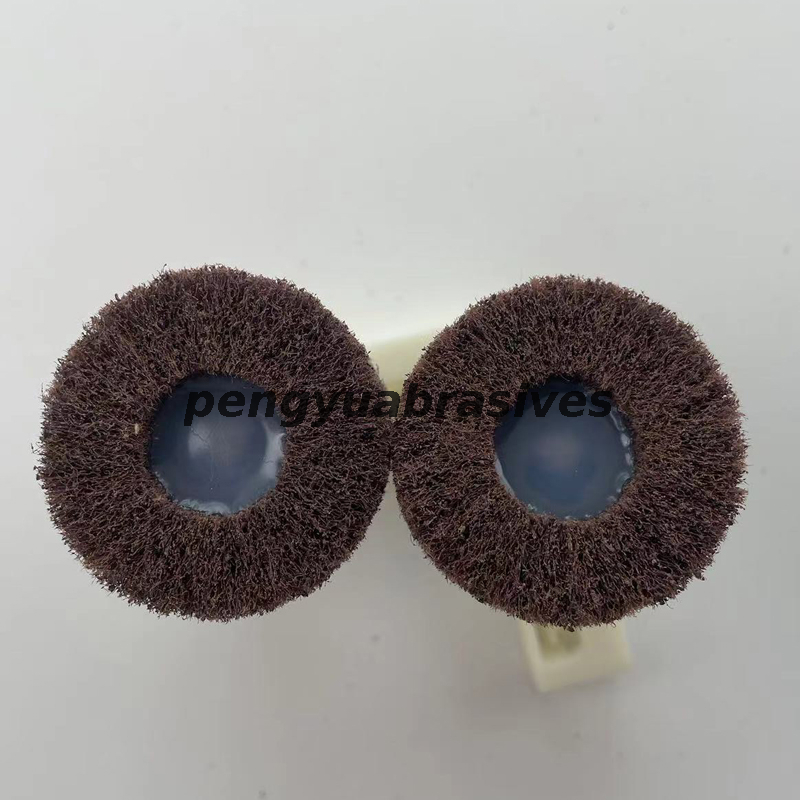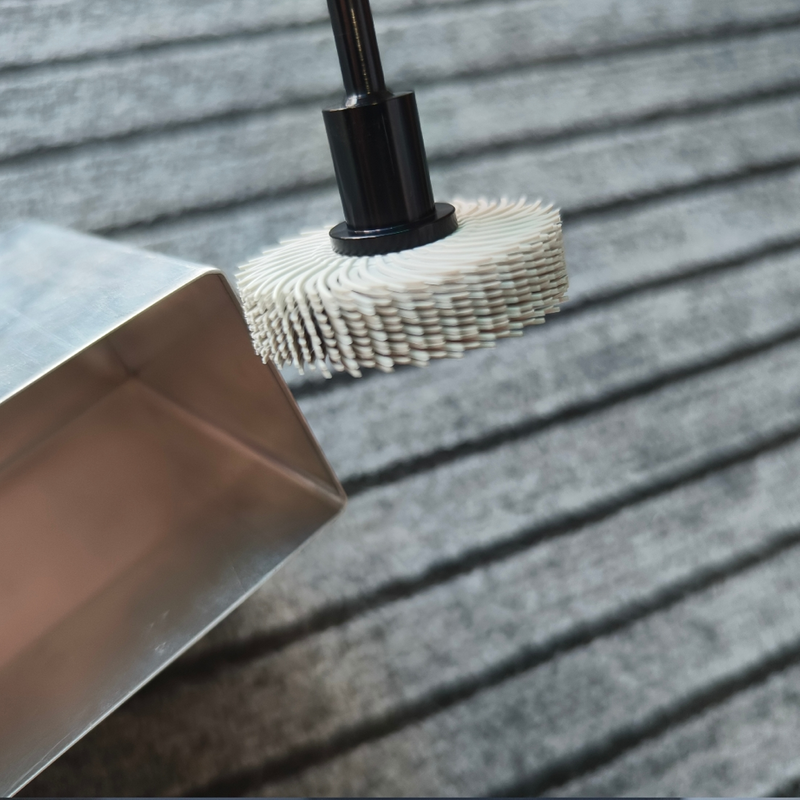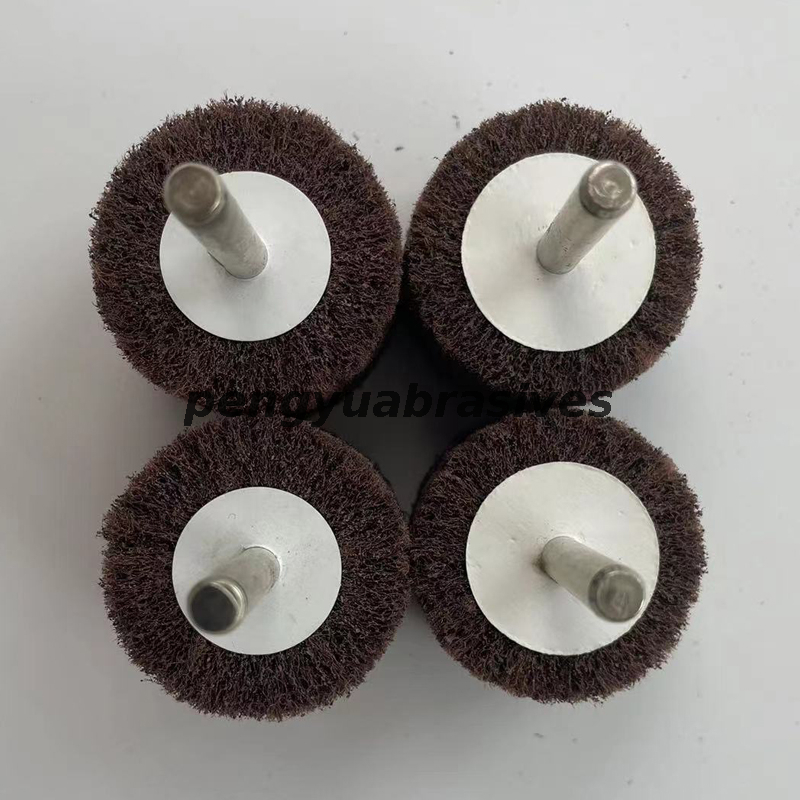Views: 0 Author: Site Editor Publish Time: 2025-05-27 Origin: Site








Have you ever used the wrong abrasive and ruined your workpiece? Flap wheels and sanding discs may look similar—but they serve different jobs. Choosing the right one can save you time, money, and frustration.
In this post, you’ll learn the key differences between a flap wheel and a sanding disc. We’ll explore how they work, when to use each, and which performs better for your needs.
To understand the comparison, it's essential to explore what a flap wheel and sanding disc are.
| Feature | Flap Wheel | Sanding Disc |
|---|---|---|
| Structure | Radial flaps of abrasive material on a central hub | Flat circular sheet attached to a backing pad |
| Flexibility | Highly flexible and contour-adaptive | Rigid and suitable for flat surfaces |
| Primary Material | Abrasive cloth or sandpaper | Aluminum oxide, zirconia, ceramic |
| Common Use | Metal finishing, deburring, rust removal | Wood, plastic, and metal sanding |
| Lifespan | Longer due to layered flap wear | Shorter; wears out faster under heavy use |
| Pressure Sensitivity | Pressure-adjusted for grinding and finishing | Requires disc change for different tasks |
| Typical Applications | Pipes, moldings, curved surfaces | Flat surfaces, panel sanding |
A flap wheel consists of multiple overlapping pieces of abrasive material (flaps), mounted around a central spindle or hub. These radial flaps are designed to wear away gradually, constantly exposing fresh abrasive surfaces. This self-renewing capability extends the tool’s life and improves consistency.
Flap wheels are designed for use in:
Metal fabrication
Automotive detailing
Pipe and tubing interiors
Mold and casting finishing
Deburring and rust removal
Flexible finishing: Excellent on curved or irregular surfaces
Cooler operation: Reduces risk of heat discoloration
Efficient workflow: Can grind and finish with a single tool
Longer lifespan: Layers wear evenly for extended use
Ergonomic benefit: Lower vibration levels reduce operator fatigue

A sanding disc is a flat disc made of abrasive material attached to a backing pad using adhesives or hook-and-loop systems. Sanding discs are available in a wide range of grits and are typically used with orbital or angle grinders.
Sanding discs excel in:
Wood surface preparation
Plastic sanding
Flat metal sheets
Automotive body smoothing
Varnish and paint removal
Versatility: Can be used on wood, metal, and plastic
Variety of grits: Enables extremely fine or aggressive sanding
Precision: Ideal for uniform, flat surface finishes
Easy replacement: Quick change systems improve workflow

| Parameter | Flap Wheel | Sanding Disc |
|---|---|---|
| Flat surfaces | Good, but not optimal | Excellent |
| Curved surfaces | Excellent | Poor |
| Inside pipes/tubes | Excellent | Limited |
| Task | Flap Wheel | Sanding Disc |
|---|---|---|
| Heavy-duty grinding | Very effective | Less effective |
| Light finishing | Effective with low pressure | Highly effective |
| Paint/rust removal | Excellent | Good |
Flap wheels tend to be more expensive initially but last longer due to their self-renewing flaps. In contrast, sanding discs are cheaper but require more frequent replacement.
Flap wheels provide safer operation with minimal chances of fragments flying off. Their vibration levels are lower, ensuring greater user comfort over extended usage periods.
Flap wheels are more forgiving for beginners as they are less likely to gouge the surface. Sanding discs, due to their aggressive flat design, require a more practiced hand to avoid damaging workpieces.

Working on intricate metal profiles or pipes
Deburring welds or smoothing curves
Need to both grind and finish in one go
Reducing downtime is a priority
Working on heat-sensitive materials
Working on large flat wooden or metal surfaces
Performing fine sanding before polishing
Conducting light-duty work on plastic or fiberglass
Budget constraints favor lower upfront costs
Both flap wheels and sanding discs are powerful tools, but they excel in different ways. When working with metal, curves, or welding seams, flap wheels provide better results and efficiency.If your job involves flat surfaces or lighter materials like wood or plastic, sanding discs may be ideal.
At Pengyu, we specialize in high-performance flap wheels built for durability and precision. Want to improve your surface finishing workflow?Pengyu's abrasive solutions can help you work smarter, not harder. Contact us today to discover the flap wheel that fits your job perfectly!
Q: What surfaces are flap wheels best used on?
A: Flap wheels are best for curved, irregular, or detailed surfaces—especially in metalworking and pipe interiors.
Q: Can flap wheels replace sanding discs in all jobs?
A: Not always. Sanding discs are better for flat surfaces and delicate material finishes like wood or plastic.
Q: Do flap wheels last longer than sanding discs?
A: Yes. Because the flaps wear gradually and expose fresh abrasive layers, they often last longer under heavy use.
Q: What grit sizes are available for flap wheels?
A: Flap wheels come in a wide range of grit sizes—from coarse (40) for grinding to fine (120+) for finishing.
Q: How can I choose the right flap wheel for my machine?
A: Check the machine's RPM and shaft size. Then choose a flap wheel designed for those specs and your material.